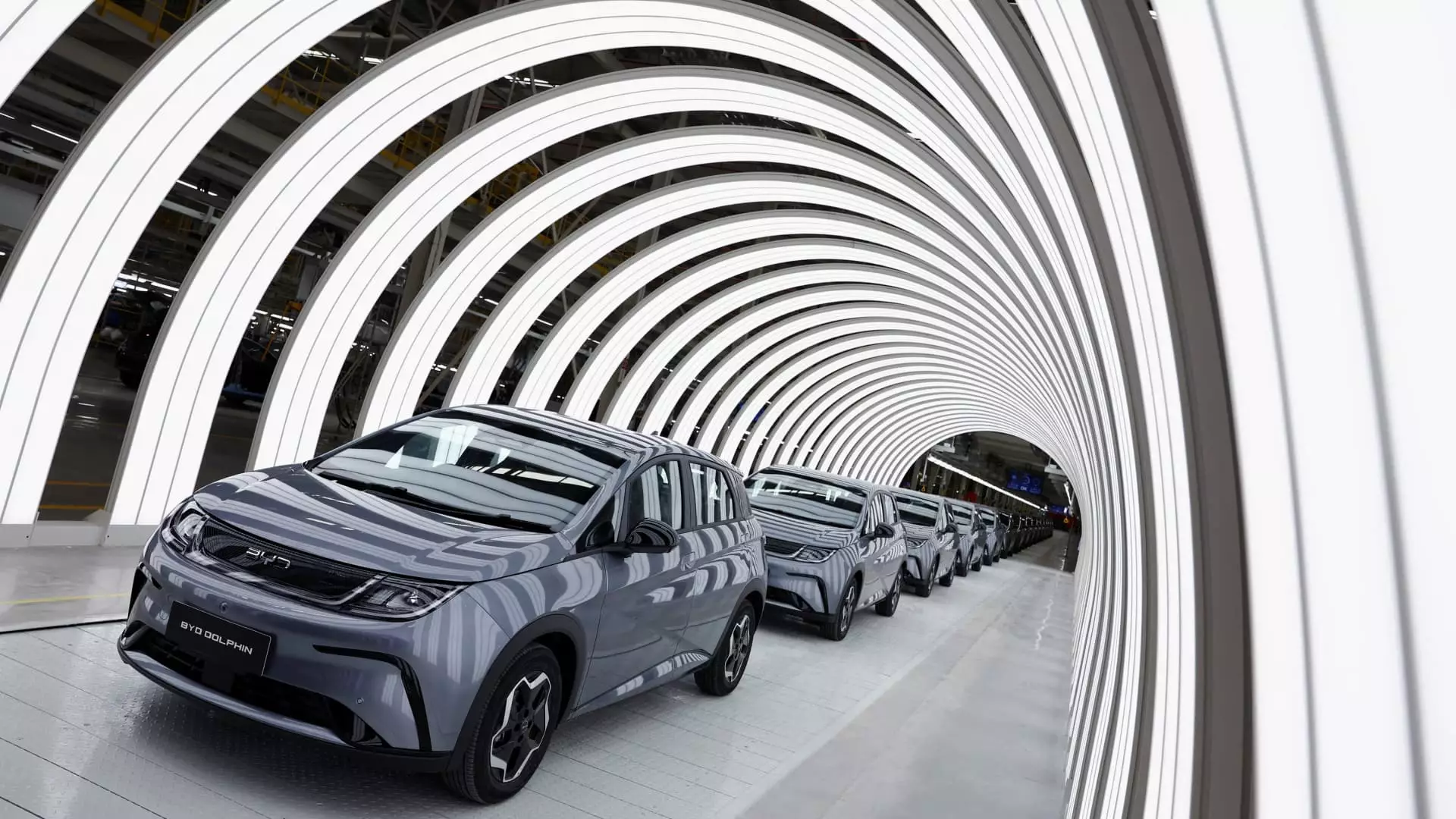The electric vehicle landscape is rapidly changing, with an increasing focus on driver-assistance technology that enhances safety and convenience. BYD, a leading Chinese electric vehicle manufacturer, has taken a substantial step forward with the introduction of its new driver-assistance system, showcasing its commitment to innovation in this evolving sector. As the company intensifies efforts in this domain, various stakeholders, from suppliers to competing manufacturers, are poised to feel the repercussions of BYD’s advancements.
BYD’s recent unveiling of a driver-assistance system for several models in its lineup, including an affordable variant priced under 70,000 yuan (approximately $9,600), is indicative of its strategy to dominate the electric vehicle market. This initiative not only marks a significant pivot towards integrating advanced technology into lower-cost vehicles but also positions BYD as a frontrunner in the competitive electric vehicle market of China. The company’s focus on embedding DeepSeek’s artificial intelligence capabilities into its systems reflects a growing trend among automakers to harness the power of AI for enhanced vehicle functionality.
The sharp rise in BYD’s stock prices following the announcement—a record high—underscores investor confidence in the company’s innovation strategies. According to analysts, the adoption of such systems is becoming critical as consumers increasingly prioritize advanced features, which could drive demand across the automotive sector. The implications of this development extend beyond BYD, suggesting a broader industry shift that may compel other manufacturers to expedite their technology upgradation efforts.
Beneficial Ripples for Suppliers and Industry Partners
The rise in demand for driver-assistance capabilities is expected to benefit companies within BYD’s supply chain. Analysts from Nomura have projected that suppliers of parts for BYD’s new systems could experience substantial growth as automakers scramble to enhance their offerings in response to market demands. By identifying key players such as BYD Electronics, Horizon Robotics, and Hesai Tech—each integral in the development of autonomous systems—investors are signaling a long-term optimistic outlook for the driver-assist market.
Horizon Robotics, being a significant chip supplier for BYD, has garnered attention with a recent price target increase, reflecting expected gains from the company’s Journey 6 chipset series. The anticipation surrounding this series, with expectations to significantly escalate its share of revenue, highlights the potential transformation in the semiconductor industry in alignment with the electric vehicle sector’s pivot towards intelligent systems.
BYD’s advancements have not just encouraged growth among its suppliers; they also present challenges for competing automakers. The quick advancement in driver-assistance technology elevates the standards in the domestic electric vehicle market. Rival manufacturers, including Tesla, may find themselves under pressure to accelerate their own development efforts in smart driving technologies. The rapid move by BYD could shift the competitive landscape, particularly as Tesla’s Full Self-Driving remains entangled in regulatory hurdles within China.
China’s government has been advocating for technological self-reliance, which further emphasizes the strategic importance of domestic players like BYD. This development could result in increased investments and focus on local supply chains, impacting both market dynamics and regulatory landscapes. As competitors assess their position in light of BYD’s initiatives, a potential arms race in technology deployment may unfold, redefining the contours of the electric vehicle market.
Financial Outlook for Key Players
In conjunction with BYD’s strides in driver-assistance technologies, financial analysts are bullish on the prospects for its supply chain partners. Regular upgrades in price targets for companies such as BYD Electronics and Horizon Robotics signify a strong growth trajectory. Reports indicating that more than 3 million BYD vehicles are expected to adopt advanced driver-assist features in the upcoming year reinforce the positive sentiment in the market.
Further, as the financial narrative progresses with rise in profitability from these advanced features, it signifies a transformative phase for the auto industry where not just manufacturers, but suppliers as well, stand to gain significantly. The complexity of modern technology in vehicles ensures that components such as lidar—a vital element in autonomous driving—will remain in high demand.
As BYD strides into the future with its driver-assistance systems, a paradigm shift is evident in the electric vehicle market. The ramifications of this innovation extend beyond the company itself, reshaping competitive dynamics and opening up opportunities for supply chain partners while pushing other manufacturers to enhance their technology portfolios. As the automotive landscape evolves, the embrace of intelligent systems signals a new era in transportation, one where safety, efficiency, and driver convenience are increasingly prioritized. The results of these trends will likely be felt industry-wide, making this a pivotal moment in the electric vehicle revolution.

